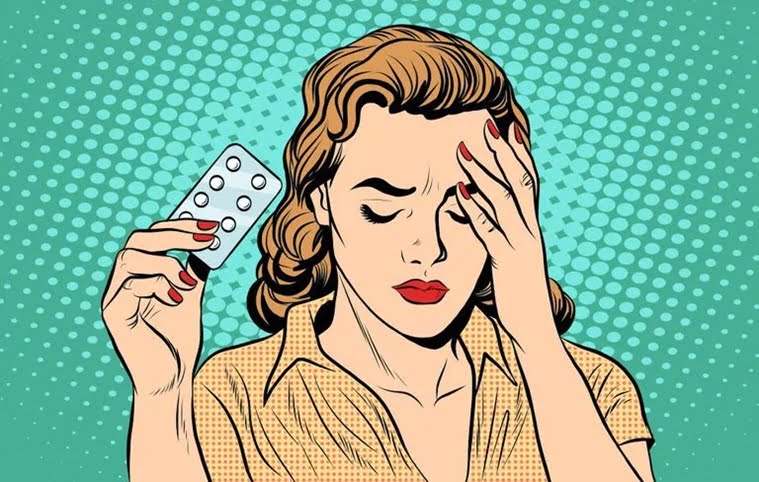From folklore full of measures that could prevent pregnancies, such as holding a sneeze while having sex, to the insertion of acacia leaves inside the vagina as an initial barrier method, there is ample evidence that contraception methods are nothing new for the human society. As the world population inches steadily towards 8 billion, the non-negotiable role of affordable, safe, and accessible contraceptive and birth control methods is affixing its place in the global consciousness. The availability of contraception today, especially oral contraception methods such as the pill has mostly given women a remarkable level of control over their fertility, increasing their agency over the decisions of their own reproductive lives. This change, often described as a full-fledged revolution, came after decades of struggle and advocacy by feminist groups. The contraception methods, as we know them today, have evolved and developed with both the theory and the praxis of feminism.
A Feminist Foundation For Birth Control
Often called the “mothers” of oral contraception pills, Margaret Sanger and Katherine McCormick deemed female contraception as a necessary precursor to female emancipation. The belief was based on the fact that since women bore a disproportionate burden of both childbirth and child-rearing, they needed access to contraception that they can control. For Sanger, contraception was a right, a view she developed after seeing the women around her, especially her mother, suffer through numerous pregnancies with little or no control over them. Both the activists enlisted the help of scientists and physicians to develop the Pill, funding the project confidentially.
Also read: iPill, uPill, We Would All Kill For An iPill In Chennai
Many feminist scholars and researchers have expressed the view that the Pill would never have been invented without the pressure exerted by feminist groups. The efforts made by Sanger for establishing the pressing need for family planning, including establishing the organisation Planned Parenthood, ushered the “contraceptive mentality” – a seemingly radical idea that the purpose of sex is not limited to procreation, and that women have control over their own fertility. The idea, unimaginable to the civil society of that time, was rapidly advocated by feminist groups, and it became a foundation for the demand of female contraception in the West.
Second Wave Feminism, Health, And Contraception
In the 1950s, a number of Western countries saw a significant and persistent rise in fertility rates, leading to the Baby Boom — an era marked by a rapid increase in birth rates. While a feminist demand for birth control emerged decades before this period, the impacts of multiple pregnancies with no spacing were becoming evident. When the first oral contraceptive pill hit the US markets in June 1960, it caused an uproar almost immediately. The Pill had many advantages; its use was discreet and affordable.
The Women’s Liberation movement was at its peak during the 1960s in the Western countries. The period was marked by tremendous change for women, in both attitudes towards them and for the rights that they accessed in the public sphere. For feminist groups, access to the Pill meant greater control in delaying pregnancies or spacing them in order to focus on other goals such as building a career or finishing a higher education degree, something which was unfeasible before. In a way, the Pill galvanised the feminist movement; for most women access to it meant a practical blurring of the lines between the private and the public spheres.

The Pill And The Sexual Liberation Movement
With the Liberation movement came questions about the limited position attributed to women in the public sphere. This inadvertently led to women actively challenging the biased and narrow traditional sexual roles that they were subjected to. At the core of this exigent juncture was the idea that women, just like men, enjoyed sex and had the right to choose when to engage in it. This idea seemed radical, and oral contraception was quickly pulled into the debate about the morality of the “sexual revolution”. Feminist and conservative groups actively clashed over the role the Pill was playing in the sexual liberation of women, with the latter blaming it entirely for encouraging “promiscuity”.
Oral contraception had managed to have an unimaginable breakthrough in Western society – it gave women the right to separate sex from procreation. Amidst a growing moral panic that without the fear of pregnancies women would have sex according to their own wills, the Pill became an easy scapegoat for conservative groups to pin the blame for a rapidly failing family system in the West. Meanwhile, the feminist historians are of the belief that the Pill did not usher in the sexual revolution, the two just collided. In some ways, the Pill spearheaded a dynamic change in the Western value systems and the idea that women have the right to control their sexual lives began to be rapidly considered.
Also read: Problems With The I-Pill And Lack Of Awareness About Contraception
The Indian Discourse On Birth Control
While the genesis of birth control has been channelised by the feminist movements across the world, the discourse in India has been significantly different. Being the second most populous nation, it was clear to all policymakers that accessible birth control and family planning is imperative for a stable economy and growth rate. In the Indian context, birth control has been more about an elitist agenda controlling marginalised and working-class women from exercising control over their own reproductive capacities. Further, the mainstream politics of birth control forwarded by Indian elites did not feature the characteristics of the feminist lobby for birth control; instead the values of equality and bodily autonomy so intrinsic to the Western birth control movement, were somewhat stifled in the post-Independence birth control in India.
However, significant contributions have been made by a strong lobby that emerged after a realization that marginalised women face double oppression due to their caste and gender identities. Women had no control over their finances and education, and that often led to a lack of bodily autonomy. Sulochanabai Dongre, a strong speaker of the All India Depressed Classes Women’s Congress, was one of the first voices that emphasized the need for accessible birth control. A pioneer Dalit Feminist, she addressed women directly and asked them to question the quality of life they could offer to themselves and their children, and she introduced a seemingly radical idea that women were people, well beyond their reproductive abilities. While the mainstream Indian idea of birth control and the Pill has been patriarchal and elite-dominated, the ideas of women like Sulochanabai Dongre continue to reverberate and streamline the feminist movements today.
It is also important to mention how in a largely developed city such as Chennai in India, women struggle to access emergency contraceptive pills (ECP) unless they have a prescription to avail so.
Ongoing Concerns
The role of the Pill and surrounding discourse has faced its share of controversies, often from feminist groups themselves. During the 1970s, certain side-effects of the Pill came under immense feminist scrutiny. The debate began from a critique of the fact that women who were prescribed the drugs were never informed about the possible health concerns and after effects of the same. As the concerns against the Pill were raging, feminist groups also highlighted and criticised how the healthcare industry was almost entirely male. There was a growing critique of the profit men were making by creating items necessary for the health of women, often at the cost of it. However, in its own way, the Pill led to a revolutionised conscience, compelling women to question the previously passive role they were attributed in their own healthcare. For most women, the Pill stands as proof that the Personal is really Political.
References
Sanjam Ahluwalia, Reproductive Restraints. Birth Control in India, 1877-1947, University of Illinois Press, Urbana & Chicago, 2008, 251 p.
Katyayni is a recent graduate in Psychology and Political Science from LSR. She has worked extensively in the field of gender and SRHR, and her interests include poetry and languages. She can be found on Instagram and LinkedIn. She can be found on Instagram and Linkedin.
Featured Image Source: Henrique Pacheco




